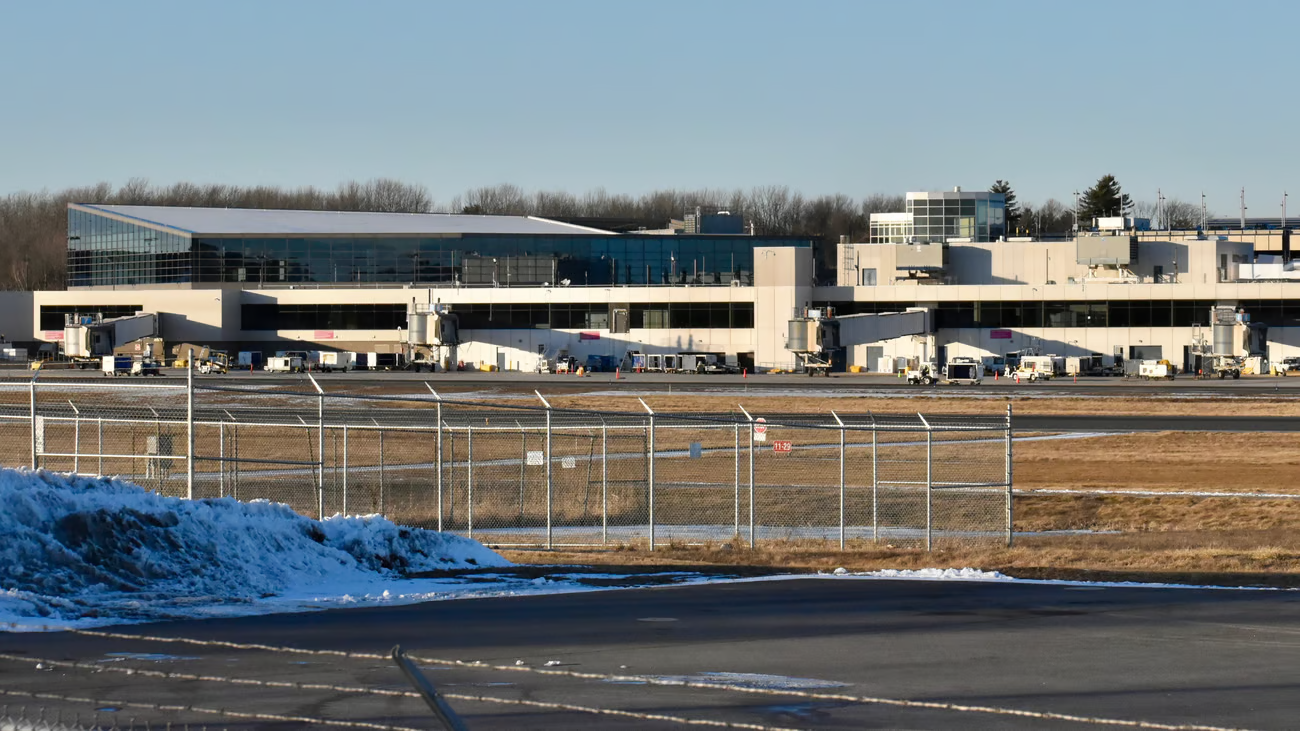As the Portland Fire Department transitions away from firefighting foam laden with ‘forever chemicals’ at the Portland International Jetport, a state lawmaker is pushing for the rest of Maine to follow.
State Rep. Dan Ankeles (D-Brunswick) teased a bill in Augusta on Tuesday that would create a statewide collection and disposal process for the toxic foam, called aqueous film-forming foam (AFFF), which contains high levels of a persistent, harmful class of compounds known as PFAS. The foam is common in fire departments across Maine.
The Portland Fire Department is in the midst of that transition, having swapped AFFF in two of three fire trucks stationed at the Jetport for a PFAS-free foam while the final truck undergoes maintenance before completing the switch, officials told The Maine Monitor.
Both measures follow the calamitous spill of the toxic firefighting foam at the Brunswick Executive Airport last August. After months of deferred maintenance by the airport’s governing authority, an equipment malfunction caused the discharge of a more than 50,000-gallon slurry of foam and water into nearby stormwater ponds, leaking into the Androscoggin River and its tributaries.
Brunswick residents and elected officials have grilled the Midcoast Regional Redevelopment Authority, which runs the airport, and the Maine Department of Environmental Protection in the spill’s aftermath, spreading attention to the use of AFFF at airports, fire departments, military bases and industrial facilities across Maine.
Though the planned AFFF bill hasn’t yet been introduced to the state legislature, Ankeles described its potential provisions at a presentation to legislators in Augusta on Tuesday, alongside advocates with Maine’s Environmental Priorities Coalition, which hosted the event.
Ankeles said the bill could create a takeback program that takes inventory of AFFF across the state and establishes collection points where municipalities and quasi-government agencies like MRRA can send it for storage.
Citing reporting from the Portland Press Herald that traced the disposal of the Brunswick airport’s AFFF to low-income communities in Canada and Arkansas, Ankeles specified that the program would provide safe long-term storage for the foam until a destruction process that is less environmentally impactful than current incineration methods are established.
“This program will protect our land and waterways and safeguard the public health of everyone from those who rely on well water to firefighters who deserve to be safe when they do their job,” Ankeles said.
In a December interview, Division Chief Sean Donaghue and Portland Deputy Fire Chief John Cenate, who is overseeing the transition, took pride in the city’s proactive initiative, emphasizing that U.S. officials only recently released AFFF disposal guidelines for fire departments at federally certified airports to follow.
“We’re way ahead of this,” said Donaghue, explaining that the 517 federally certified airports were required to have AFFF on-hand until recently. The transition is “well managed and well organized. I’m really proud of the fact that we’re… out in front.”
The federal guidelines include precautionary measures that Portland firefighters followed when handling the foam, which included suiting up in protective outerwear and donning masks, goggles and gloves, according to Cenate.
The effects of PFAS on human health are still being discovered, but the U.S. Centers for Disease Control and Prevention has linked the chemicals to weakened immune responses, kidney and testicular cancer, and pregnancy-induced blood pressure disorders.
To ensure that the toxic foam didn’t escape into the nearby Fore River and accumulate in aquatic species like it has by the Androscoggin in Brunswick, Portland firefighters carefully opened valves on the trucks’ tanks and released the AFFF into special chemical-grade totes, with a back-up catchment underneath.
Firefighters then rinsed the trucks twice, driving them around with water sloshing in the tanks, and emptied the byproducts into the same totes as the foam. The department replaced the AFFF with roughly 1,800 gallons of a new foam that lacks fluorine, the element that bonds with carbon in PFAS molecules to form one of the strongest known chains of atoms.
The AFFF and byproducts are currently being stored at the Portland Jetport until the environmental waste company contracted by the city collects the totes and disposes of them, Cenate said.
Whereas disposal of the foam is under the oversight of the waste company contracted by Portland, MXI Environmental, Ankeles, the Brunswick legislator, intends for his legislation to mandate the storage of such foam until safer disposal techniques are developed, namely ones that don’t involve the release of potentially hazardous byproducts through incineration.
“It’s important that we be able to stand up this program as the technology continues to develop, and make sure that we dispose of this” foam, Ankeles said, and “get it out of Maine’s communities in an environmentally safe and an environmentally just way.”







